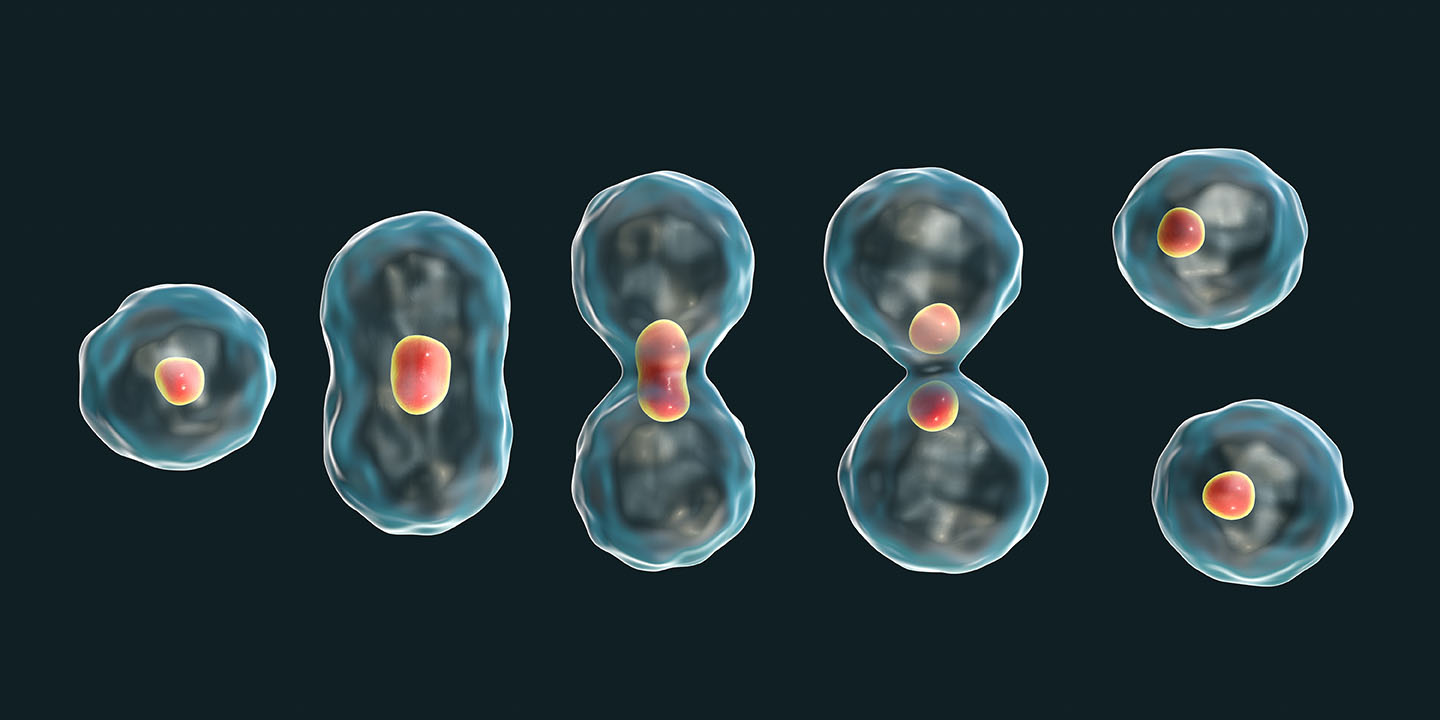

Reproduction is the process of making new copies of something. In the case of living things, reproduction is the process of making new individuals of the same kind.
There are two main types of reproduction: asexual reproduction and sexual reproduction.
Asexual reproduction is when a single individual makes a copy of itself. This can happen in a variety of ways, such as budding, fragmentation, and regeneration.
Sexual reproduction is when two individuals come together to produce a new individual. This involves the fusion of two gametes, which are specialised cells that contain genetic material.
Reproduction is important for living things because it ensures that the species survives. Without reproduction, there would be no new individuals to replace the old ones that die.
The virus reproduces by infecting other cells.

Noun:
The word "reproduction" comes from the Latin word "reproducere", which means "to produce again".
The first recorded use of the word "reproduction" in English was in the 16th century.
What does reproduction mean?